Introduction
Quality castings play a crucial role in numerous industries, ranging from automotive and construction to machinery and beyond. Achieving superior castings requires the expertise and capabilities of cast iron foundries. These foundries have been instrumental in producing high-quality castings for decades.
In this article, we will explore the advantages of cast iron foundries and understand why they are essential for delivering top-notch castings that meet the stringent requirements of diverse applications.
Overview of Cast Iron Foundries
Cast iron foundries are specialized manufacturing facilities that focus on the production of cast iron castings. Cast iron is a versatile and durable material known for its strength, heat resistance, and wear resistance. Foundries utilize various processes, including pattern-making, molding, melting, pouring, and finishing, to transform molten iron into intricate castings. Let’s delve deeper into the advantages that cast iron foundries offer.
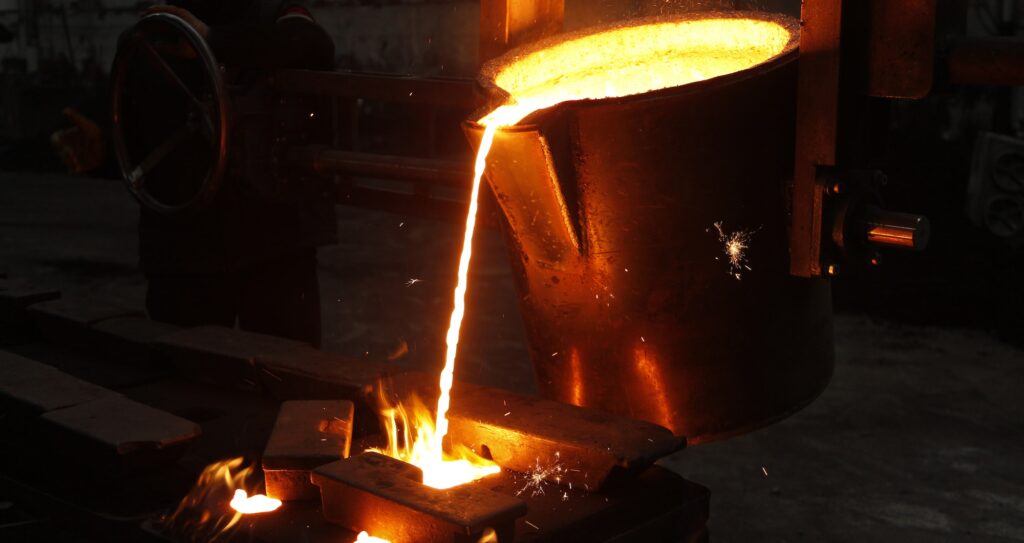
Advantages of Cast Iron Foundries
Superior Material Properties
Cast iron boasts exceptional material properties that make it an excellent choice for various applications. These properties contribute to the longevity and reliability of castings.
Strength and Durability: Cast iron exhibits remarkable strength and durability, making it suitable for demanding applications. It can withstand heavy loads, impacts, and vibrations, ensuring the longevity of the castings even in harsh operating conditions.
Heat Resistance: One of the standout advantages of cast iron is its exceptional heat resistance. It can endure high temperatures without losing its structural integrity, making it an ideal choice for components exposed to extreme heat, such as engine blocks and exhaust manifolds.
Wear Resistance: Cast iron is highly resistant to wear and abrasion. This property makes it an excellent choice for components that experience friction and constant contact with abrasive substances, such as pump impellers, hydraulic cylinders, and brake components.
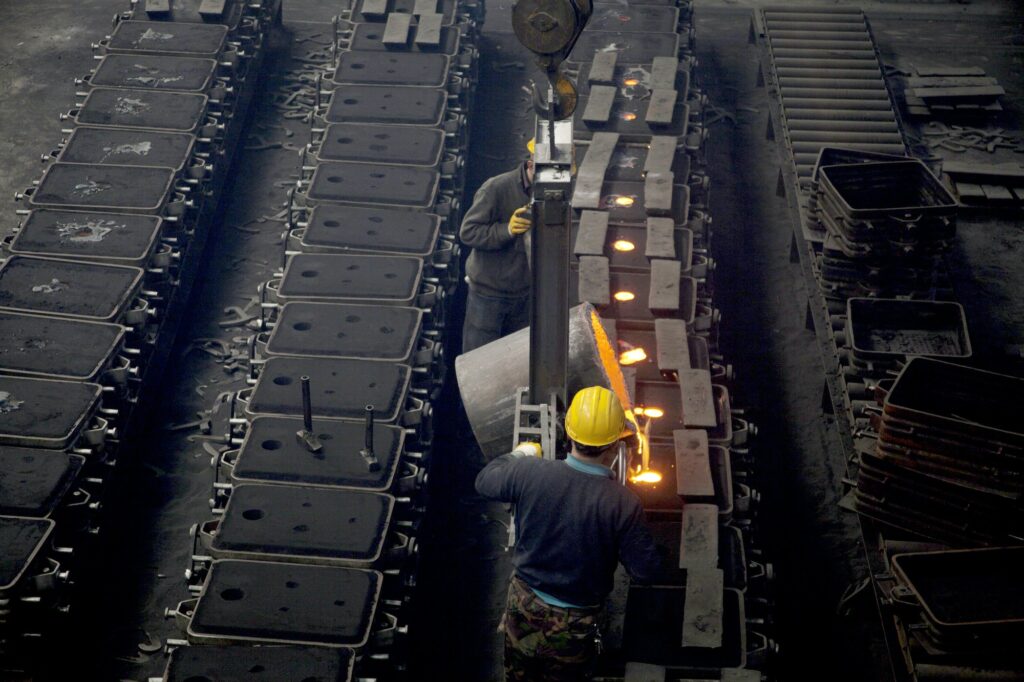
Versatility and Flexibility
Cast iron foundries provide manufacturers with remarkable versatility and flexibility in terms of design, size, and casting methods. These advantages open up numerous possibilities for creating customized castings.
Design Freedom: Cast iron foundries offer design freedom, allowing manufacturers to create complex and intricate castings with ease. Whether it’s intricate detailing, fine textures, or intricate geometries, cast iron foundries can transform these designs into tangible castings.
Size and Weight Capabilities: Cast iron foundries are capable of producing castings of various sizes, ranging from small to large. This versatility ensures that manufacturers can obtain castings that perfectly match their specific requirements, regardless of the scale.
Various Casting Methods: Cast iron foundries employ different casting methods to suit specific casting needs. Green sand casting, shell molding, and investment casting are just a few of the techniques used. Manufacturers can select the most suitable method based on factors such as complexity, cost, and desired casting properties.
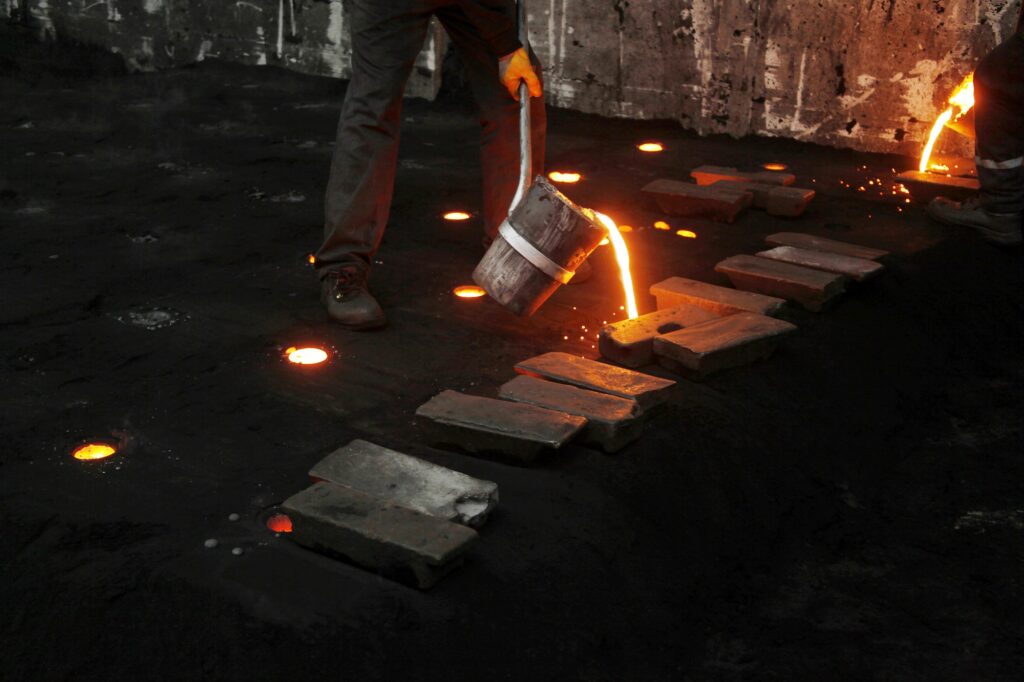
Cost-effectiveness and Efficiency
Cast iron foundries offer cost-effective solutions for manufacturers, ensuring efficient production rates and reduced machining requirements.
Material Availability: Iron is abundantly available and cost-effective, making it an economical choice for castings. The accessibility and affordability of iron as a raw material contribute to the cost-effectiveness of cast iron foundries.
High Production Rates: Cast iron foundries have the capacity to achieve high production rates, enabling manufacturers to meet large-scale demands efficiently. This capability is essential for industries with high-volume production requirements, such as automotive and machinery manufacturing.
Reduced Machining Requirements: Cast iron castings typically possess excellent dimensional accuracy, reducing the need for extensive machining. The precise dimensional control achieved through cast iron foundries minimizes the machining requirements, resulting in significant time and cost savings for manufacturers.
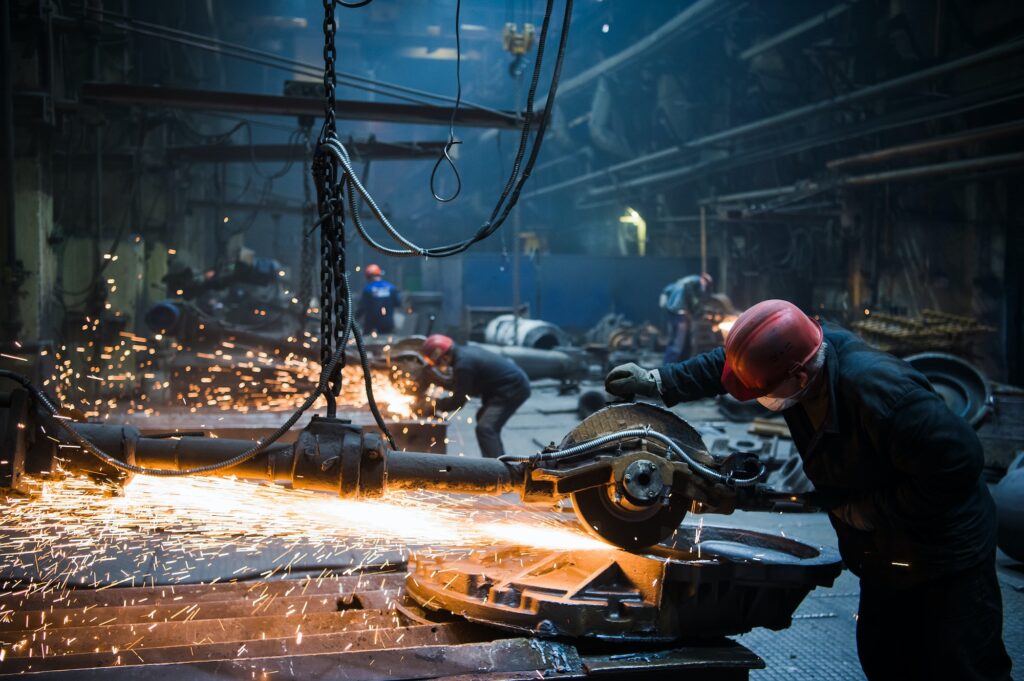
Exceptional Casting Quality
Cast iron foundries are renowned for delivering castings of exceptional quality, meeting the stringent standards of various industries.
Surface Finish: Cast iron foundries can achieve smooth and aesthetically pleasing surface finishes on castings. This is particularly crucial for industries where the visual appearance of the castings holds importance, such as architectural applications.
Dimensional Accuracy: Cast iron foundries excel in producing castings with precise dimensional accuracy. The ability to control dimensions with accuracy ensures that the castings fit perfectly into the intended assemblies, eliminating the need for rework or adjustments.
Consistency and Repeatability: Cast iron foundries are capable of consistently producing high-quality castings with minimal variation. This consistency and repeatability are vital for industries that require identical or interchangeable castings for assembly or replacement purposes.
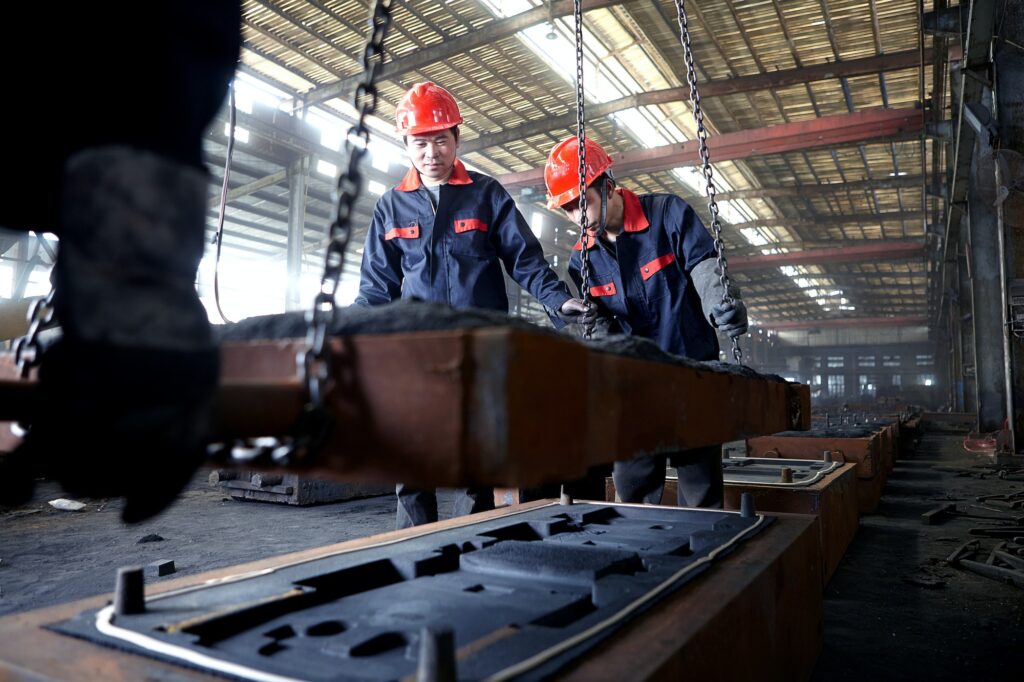
Applications of Cast Iron Castings
Cast iron castings find extensive applications across various industries, owing to their unique advantages and capabilities.
Automotive Industry: Cast iron castings play a significant role in the automotive industry. They are used in engine blocks, cylinder heads, brake components, and transmission housings. The strength, heat resistance, and wear resistance of cast iron make it an ideal material for these critical components.
Construction and Infrastructure: Cast iron castings are employed in numerous construction and infrastructure applications. They are used in structural components, drainage systems, manhole covers, and municipal infrastructure. The durability, load-bearing capacity, and corrosion resistance of cast iron ensure the longevity and reliability of these applications.
Industrial Machinery: Cast iron castings find wide-ranging applications in industrial machinery. They are utilized in pumps, valves, gearboxes, machine bases, and other critical components. The material properties of cast iron, including strength, wear resistance, and dimensional stability, make it an optimal choice for these demanding applications.
Other Industries: Apart from the aforementioned industries, cast iron castings find applications in agriculture, mining, energy, and more. In agriculture, they are used in equipment parts such as plows and cultivator blades. In mining, cast iron castings are employed in heavy machinery components and ore crushing equipment. The energy sector utilizes cast iron castings for applications such as wind turbine bases and hydroelectric power generation.
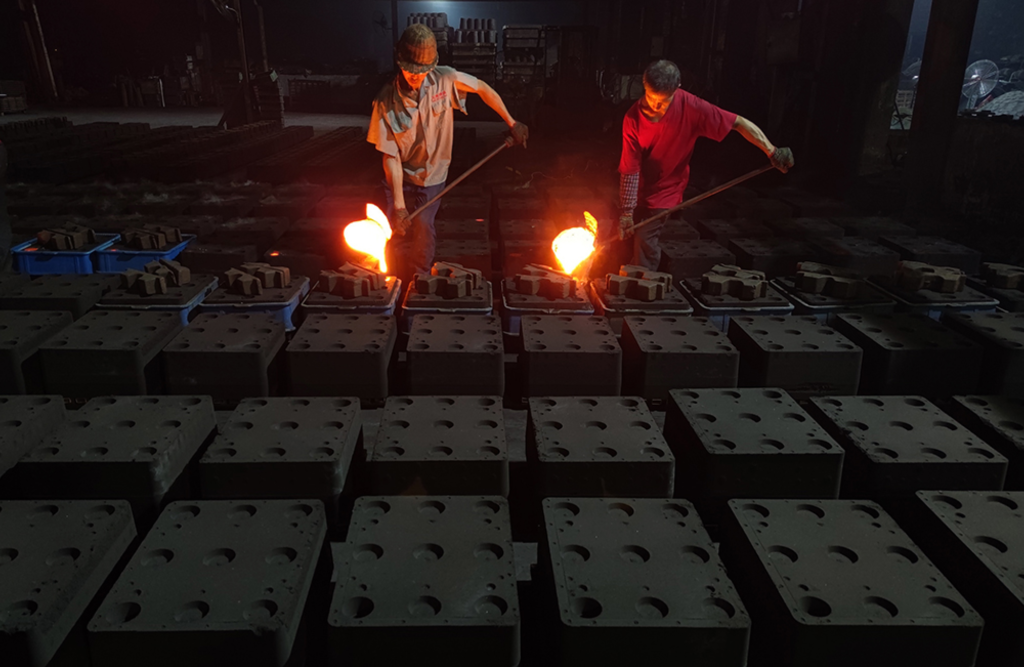
Conclusion
Cast iron foundries play a vital role in the production of high-quality castings. The advantages they offer, including superior material properties, versatility, cost-effectiveness, and exceptional casting quality, make them essential for delivering castings that meet the stringent requirements of various industries. Whether it’s achieving strength and durability, design flexibility, cost-effectiveness, or precise dimensional accuracy, cast iron foundries ensure that manufacturers can obtain top-notch castings tailored to their specific needs.
By harnessing the advantages of cast iron foundries, industries worldwide can benefit from the exceptional properties and capabilities of cast iron castings, driving innovation and reliability across a broad spectrum of applications. Contact us at Castimoo for your cast iron casting requirements and experience the advantages firsthand.
